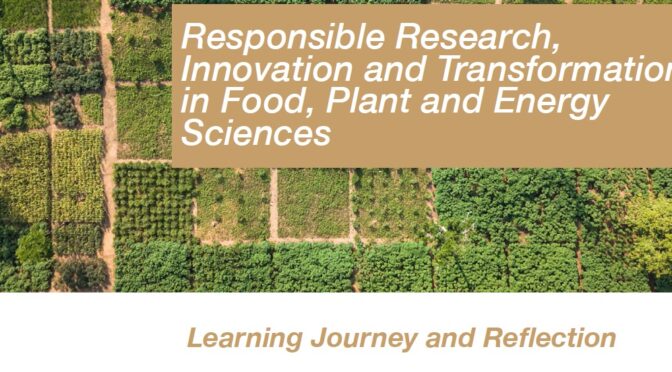How can we teach PhD student’s ways to generate varieties of transformative solutions to urgencies ahead?
Summer schools can enrich the learning experience of participants. The summer school proceedings are a summary of the learning journeys of the participants on the five case studies: Digital technologies for urban micro farms, circular approaches in the food system, vertical farming, sustainable and resilient energy, food and biodiversity landscapes, stewardship of land use change?
Report (PDF)
Citation: Response Summer School «Responsible Research, Innovation and Transformation in Food, Plant and Energy Sciences» Learning Journey and Reflection. Melanie Paschke (ed.). Zurich-Basel Plant Science Center, 2021. With contributions by: Manuel Belanche Guadas, Linda Brodnicke, Dusan Denic, Danli Fei, Linda Frattini, Laurent Giguère, Reah Gonzales, Monika Katarzyna Goralczyk, Katharina Jung, Xeniya Kim, Simon Landauer, Yuanyuan Liang, Alberto Linares Quiros, Simone Markoff, Bessie Noll, Dabwiso Sakala, Fei Wu, and Francesca Zuffa: https://www.research-collection.ethz.ch/handle/20.500.11850/523545.2
The RESPONSE summer school of 5 days built an environment for participants to work through the following steps: Participants framed the problem and emphasized with stakeholders’ perspectives, values and needs. They explored different methods for stakeholder engagement. They experimented with value-based and human-centred design thinking to ideate and prototype a variety of solutions. They reflected on the implementation of their prototypes in different social practices to anticipate questions and dilemmas, purposes, motivation, and potential impacts in society.
What participants mentioned as most important for them, was:
- Broadening the view on social relevance; thinking about the big context of own research.
- Reflecting on the impact and needs from stakeholders’ perspectives.
- Understanding needs and concerns of those involved at the beginning of the process.
- Working in a case study with students from different backgrounds; experiencing how in the end the group came up with a solution together.

